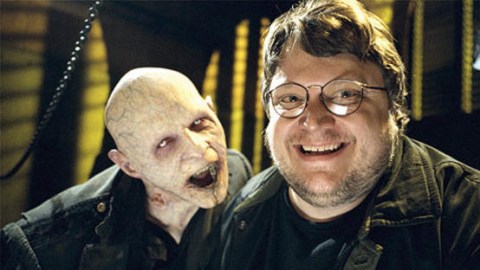Guillermo del Toro Analyzes the Cultural Significance of Monsters

No one knows monsters better than Guillermo del Toro. The director of “Pan’s Labyrinth” and the “Hellboy” franchise is renowned for creating fantastical beasts like the terrifying Pale Man, with his sagging skin and his eyes in his palms. With his new vampire fiction trilogy, “The Strain” (co-authored by mystery scribe Chuck Hogan), del Toro focuses his talents squarely on reimaging the age-old blood suckers.
Vampires are so popular right now because intimate human relationships have become completely demythified, says del Toro. Vampires, like Edward Cullen, from “Twilight” are fused with the Gothic bad boy romantic lead myth to create a lover more eternal than Heathcliff and more chaste than a choirboy. “For the first time in the culture of mankind, the vampire has been sort of defanged by making them celibate and asexual as opposed to polysexual, like Anne Rice did,” he says. “They have been Mormonized, so to speak, into being a sanitized creature.” But the vampires in del Toro’s novels are anything but sanitized: “The only sensuality in ‘The Strain’ books is the sensuality of feeding that pleases the predator, but doesn’t please the prey.”
In his Big Think interview, del Toro explains that the monsters we create, like vampires, can tell us much about our own fears and desires. “Obviously, monsters are living, breathing, metaphors,” he says. “But for me, half of the fun is explaining them socially, biologically, mythologically, and so forth.” Western culture teaches us to understand the world in terms of binaries, which is why we create demons in the first place—to balance out angels.
Del Toro also tells us that creating monsters is like jazz. “You don’t take a bunch of ciphers and try to add them or subtract them or multiply them or factor them. You’re dealing with almost a physical process and, like jazz, what is important is that you riff—you riff by instinct and you riff with the best you can.” Since he deals with monsters every day, they no longer scare him, but there are plenty of things in real life that scare him, including cops and politicians. “When people talk about the collapse of society, there an anarchist inside of me that kind of digs it. You know, I really, I’m very afraid of institutions. And especially the ones that do anything but what they were supposed to do.”
He also offers some advice for aspiring directors and screenwriters. “If you don’t like the movies that are being made, make your own. Show the world what you want to do, what you think this medium should be. And I find that much more creative than simply putting it down and complaining about it. It is a more active, fascinating role to take. So the advice is that if you want to direct, direct. And even easier, if you want to write, write.”




